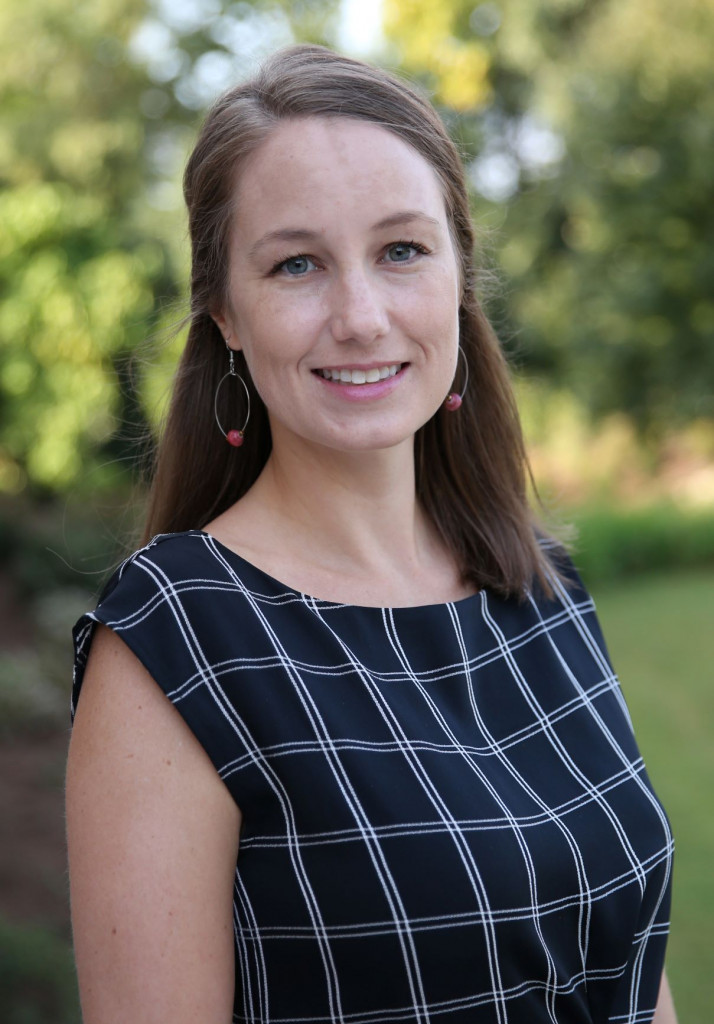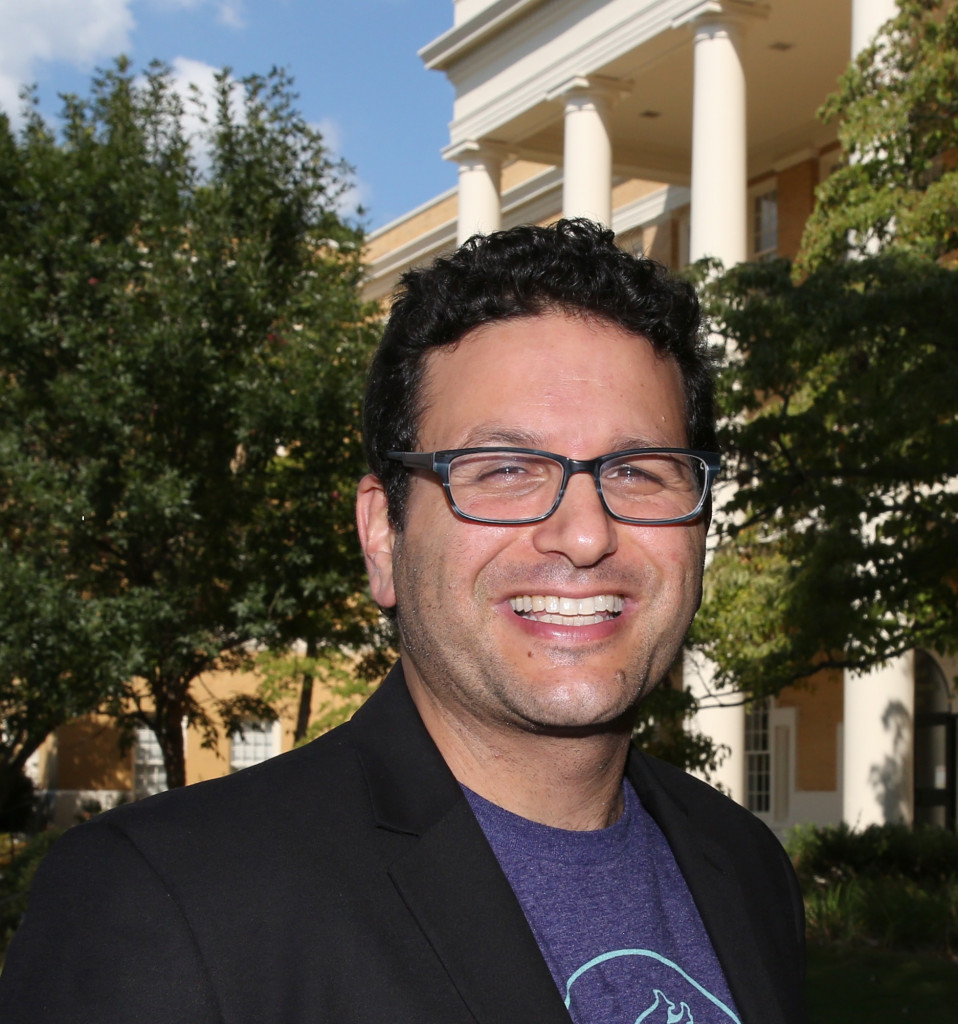Research in Human Development and Family Science
-
Diane Bales
Professor, Extension Human Development Specialist, and Child Life Program Director
I conduct applied research to evaluate the effectiveness and short- and long-term impact of outreach programs on early brain development, supporting youth and adults with mental health challenges, healthy eating and physical activity for young children, and other topics.
Brain Development
The focus of this effort is to increase use of brain development research to provide appropriate care and nurturing for young children. This effort includes co-leading the Georgia Better Brains for Babies (BBB) initiative, training BBB educators, and developing and disseminating print and online resources on early brain development. BBB training has been adopted by Extension professionals in three states (Georgia, Kansas, and Illinois), and efforts to expand into Tennessee are currently underway. A total of 8 different outreach products were developed as part of this effort.
Preventing Opioid Misuse in Rural Georgia
This is a USDA Rural Health and Safety grant-funded collaboration of Extension professionals and opioid researchers in Public Health, Pharmacy, and Public Affairs to pilot-test community-based interventions to build family strengths, increase community awareness of opioid misuse, and help professionals identify and manage opioid misuse in youth and adults. Current efforts include county needs assessment, developing and implementing programs in 4 rural counties, and evaluating the effectiveness of these programs. This project began in September 2019.
Farm and Farm Family Stress (Southern Agriculture Exchange - SAgE)
This is a multi-state USDA NIFA grant-funded collaboration, headed by the University of Tennessee, to support farmers and farm families experiencing stress. The project includes Mental Health First Aid, Youth Mental Health First Aid, and Question-Persuade-Refer (QPR) training for a variety of audiences working in agriculture, the AgriLeadHER project for women in agriculture, and many other projects.
Nutrition and Physical Activity in ECE
Healthy Child Care Georgia (HCCG), a component of the UGA SNAP-Ed grant, helps ECE programs reduce children’s risk of obesity through policy changes and direct education for teachers, children, and families. The project includes a teacher-implemented 6- curriculum to teach preschoolers nutrition and physical activity, as well as family newsletters and activity bags. The project has reached ECE programs in Clarke, Oconee, Madison, Elbert, Walton, and Fulton Counties, and will expand to additional counties in 2023 and beyond. This multi-year project is funded with UGA SNAP-Ed funding.
-
J. Maria Bermudez
Associate Professor
Dr. Bermudez's research program focuses on strength-based approaches to research and outreach for marginalized populations, specifically Latinx families and communities. She aims to conduct research that empowers and strengthens her local community.
As a scholar, she attends to developmental, intersectional, and contextual issues among immigrant and transnational families. Her research is informed by feminist, decolonizing, and culturally responsive methodologies and her primary research methods include community-based participatory research and qualitative research methods such as interpretive phenomenology and heuristic inquiry.
Other research interests include clinical training in Spanish and English, as well as innovative and creative approaches to narrative family therapy.Dr. Bermudez is currently analyzing data related to the interdisciplinary community-based participatory research project Lazos Hispanos, which she co-created with her colleagues Dr. Rebecca Matthew, Dr. Pamela Orpinas, and Dr. Carolina Darbisi at UGA. Specifically, she is conducting a heuristic inquiry focused on the lived experiences of the Lazos Hispanos promotoras/community health workers during the COVID-19 pandemic. She is also exploring how they continue to serve as agents of change using the skills learned from the Lazos Hispanos program to strengthen Latinx families in their communities.
She is also currently conducting a study using interpretive phenomenology to explore Latinx parents' perception (dyadic data) and meaning-making of their children's well-being and resilience.
-
Noel Card
Professor
My research interests are in developmental science and quantitative methods, and especially at the interface of these disciplines. My developmental interests are broadly within the domain of child and adolescent social development, with specific interest in aggression and peer victimization. My quantitative interests are in meta-analysis, structural equation modeling, analysis of longitudinal data, and analysis of interdependent data.
-
Margaret Caughy
Georgia Athletic Association Professor in Family Health Disparities
I am Principal Investigator of the Dallas Project on Education Pathways (DPREP) funded by NICHD which explores the contextual, cultural, and family factors contributing to the development of self-regulation and academic achievement of African American and Latinx preschoolers experiencing poverty. We have been following this sample of over 400 children since they were 2.5 years old and recently completed the 8th wave of data collection, when the target children were in 7th grade. I am particularly interested in how familial processes such as supportive parenting and ethnic-racial socialization support healthy development among children experiencing contextual stressors such as economic instability, racism and discrimination, and sociopolitical stress. Video recorded interactions between the study children and their mothers as well as their fathers have allowed us to identify culturally-specific ways that African American and Latinx parents support healthy development in their children.
For more information, visit my lab website: https://www.sdcdlab.com/
Current funding:
NIMH 1R01MH135915, “Latinx mental health from early childhood through the transition to adulthood”, MPI, 25% [with K. Roche (GWU) and E. Calzada (UT-Austin)], Budget (total costs): $3,879,874 (2024-2029)
NICHD 1R01HD100557-01A1, “The role of fathering in the language development among young, low-income African American and Latino children”, PI, 30%, Budget (total costs): $3,196,051 (2020-2025)
NICHD 3R01HD100557 (supplement), “Developing culturally appropriate language assessment tools for low-income African American and Hispanic young children”, PI, 10%, Budget (total costs): $548,651 (2023-2025)
NICHD 2R01HD075311-04A1, “Self-regulation and the transition to middle school”, PI, 30%, Budget (total costs): $4,544,840 (2013-2024).
-
April Few-Demo
University of Georgia Foundation Professor in Family & Consumer Sciences and Department Head
As a feminist family scholar, her research embodies a longtime commitment to investigating how marginalized individuals and families experience social disparities and inequities as well as how they engage in decision-making processes toward resilience and well-being. Specifically, her research reflects a strengths-based examination of the interplay of relational and situational vulnerabilities and resiliencies as they relate to agency and personal power within the contexts of identity development, intimate partner violence, sexuality and decision-making. Dr. Few-Demo also has written about the utility of critical theories such as Black feminist theory, intersectionality, queer theory, and critical race theories in family science.
-
Ted Futris
Professor & Extension Family Life Specialist
Director of Graduate StudiesAs director of the Couple and Relationship Enrichment (CARE) Laboratory, my research informs and evaluates educational programs and resources that promote healthy couple and coparenting relationships.
I direct a federally funded initiative, Elevate Couples Georgia, that is implementating the evidence-informed program, ELEVATE, to couples across Georgia. We are evaluating changes in indvidual and couple functioning and well-being following the program, and how these changes vary based on individual, couple, and program deliver (i.e., in-person vs. virtual) characteristics. To learn more about my active research projects, visit https://www.ugacarelab.org/
-
Charles Geier, Ph.D.
Associate Dean for Research and William P. Flatt Professor
We use behavioral measures (e.g., cognitive tasks, eye tracking) and multi-modal functional neuroimaging (e.g., task-based functional MRI, resting state fMRI) to examine (1) the normative neurodevelopment of reward and control-related brain systems during adolescence and young adulthood, (2) how the interaction of these systems contributes to health-related behaviors and illness, including consummatory behavior and obesity, smoking cigarettes, and depression, and (3) how initially reward- or goal-directed behaviors 'evolve' into habits in adolescents and young adults. We are particularly interested in applying advanced statistical methods (e.g., GIMME, time-varying vector autoregressive models, etc.) to acquired fMRI time series data to characterize intra-individual change and inter-individual differences in intra-individual change in brain connectivity between task-relevant regions of interest that underlie decisions and habits.
-
Jennifer Gonyea
Clinical Professor
My research encompasses the clinical aspects of my role in the department as well as my role as a faculty member: the practice and supervision of couple and family therapy as well as the scholarship of teaching and learning (pedagogy). I am not taking doctoral students as a primary advisor.
My teaching and scholarship focuses on examining family interactions, improving family functioning, coupled interactions, and strengthening couples as well as the methods for training others for service delivery with couples and families. I use qualitative and mixed methods designs in my scholarship of pedagogy, ethical decision-making, community engagement, couple/family intervention, supervision of clinical trainees, and community-based interventions that encompass overall health, nutrition, mindfulness, and mental health. I conduct evaluation research on both the processes and outcomes of community based trainings, organizations, and community based intervention programs directed toward improving mental health outcomes, overall wellness, and intimate relationships.
-
Steven Kogan
Athletic Association Professor of Human Development
Dr. Kogan's areas of research include Black American men's substance use during emerging adulthood and evaluating family-centered alcohol prevention programs for Black American youth. His research includes conducting randomized prevention trials and longitudinal studies of development.
My research addresses the public health need to prevent substance use and high-risk sexual behavior among Black American youth, particularly those residing in resource-poor rural Southern environments. This research program involves identifying individual, family, and community factors that protect young people from high risk behavior and translating these findings into efficacious, ecologically appropriate interventions.
-
Kalsea Koss
Associate Professor
The central focus of my work is to understand the interplay between social environments and biology to answer the question of how adversity ‘gets under the skin’ to shape mental health during childhood and adolescence. My research examines interplay across multiple levels of responses including emotional, behavioral, genetic, and biological contributions to understanding stress and development. My current work focuses on the stress response system (e.g., the hypothalamic-pituitary-adrenal axis) and the epigenome.
My research broadly focuses on risky family environments for understanding how early adversity shapes developmental trajectories of health and wellbeing across the life course. My work has examined a diverse range of stressors for families and children including, conflict, harsh parenting, neglect, and poverty. I am also interested in the role of family protective factors that buffer against chronic stress and promote more optimal development.
-
Melissa Kozak
Principal Lecturer & Undergraduate Program Coordinator
My research focuses on pedagogy through a Scholarship of Teaching and Learning (SoTL) lens. I explore and implement effective pedagogical strategies, with particular interest in:
- Use of alternative texts (e.g., novels in Human Sexuality Across the Lifespan; non-fiction and archives in Family Perspectives in Policymaking)
- Service-learning
- Impact of internships on students' personal, professional, and civic identities
- Peer review
-
Melissa Landers-Potts
Interim Assistant Dean for Academic Programs
Dr. Landers-Potts is interested in how familial and contextual factors, such as access to resources, use of technology, etc., influence the development and flourishing of adolescents by way of the parenting practices of their caregivers. Recently, she has begun research on the experience of parental divorce during emerging adulthood and its impact on the well-being of young adults. Additionally, she frequently presents on pedagogical practices and research focusing on active learning, the Universal Design for Learning, and her teaching model in which she has partners with a private sector telemental health company to further the learning of her students and application of the course content they are studying to real-world situations.
Effects of experiences parental divorce in emerging adulthood
Service-learning and self-compassion
Effects of electronic communication on adolescent well-being
-
Catherine Walker O’Neal
Associate Professor
My passion is promoting family well-being through high-quality research. I am interested in the acute and chronic stressors families experience and how to enhance resilience when faced with stress, particularly for military families. A few principles of my research include:
- Conducting translational research – I emphasize conducting research that answers the “So what question” (So what do we do because of these findings?). One avenue of my work that illustrates this emphasis is my family program evaluation efforts. These evaluation efforts point to what works well in family programming and promotes well-being while also pointing out what can be improved.
- Thinking broadly about family well-being – I take a “30,000 foot view” in understanding family well-being. My holistic focus leads me examine numerous factors linked to family well-being. In particular, my research has made contributions to understanding how finances/financial stress and broader contexts, such as military life, impact family well-being.
- Using advanced quantitative methods – I value the use of rigorous quantitative methods, such as dyadic data to capture multiple family members’ perspectives, latent profile analyses to identify heterogenous sub-groups, and latent growth curve models to understand change over time. However, I also stress the importance of using the methods that are best suited for the research question. Using complicated analyses when a simpler method best addresses the research question is akin to the “tail wagging the dog.”
I am accepting students seeking to study military families in Fall 2026.
My research and outreach efforts focused on military families currently include three funded projects:
- I am the principal investigator for the evaluation of the U. S. Department of the Air Force financial readiness program. We use quantitative and qualitative methods to conduct outcome and process evaluation. We assess program outcomes longitudinally and across multiple domains (including individual and family well-being). Findings are used to generate reports to funders as well as disseminate to the broader scientific community.
- I am the co-investigator for Military REACH, a DoD/USDA partnership project that synthesizes military family research to make it accessible and relevant for families, helping professionals, and policymakers.
- I am the principal investigator for a project with the USAA Educational Foundation and the DoD Office of Financial Readiness measuring the efficacy of military financial literacy interventions.
Learn about our newest study (Family Financial Readiness through Service member Transitions; FFiRST) here.
-
Assaf Oshri (Full Professor)
Samuel A. and Sharon Y. Nickols Endowed Professor/ Director: Georgia Center for Developmental Science
I am part of the Georgia Center for Developmental Science. I am interested in children's and youth's well-being and resilience. In my research program, I focus on understanding youth development using multi-methods (observation, surveys, neuroimaging-fMRI, stress physiology) and multi-level research (e.g., individual cognition, personality, family, peer, and neighborhood environments). Specifically, our team conducts research that elucidates the multi-level mechanisms that underlie the link between early-life stress in childhood (e.g., child maltreatment, poverty, cultural stress) and adolescent behavioral risk (e.g., substance use, sexual risk behavior) and resilience. I hope that the knowledge generated by my research will inform intervention and prevention programs, as well as promote resilience among children and adolescents at risk.
Theory and level of analyses that inform my research:
Developmental Cognitive Neuroscience, Hormesis, Developmental Psychopathology, Evolutionary-Developmental Perspectives, Developmental Psychobiology,
On Twitter: @YDIatUGA
Using multi-level methodologies to elucidate links between early life stress and decision-making, risk behaviors, and resilience among rural youth; The
Resilience: developmental context and mechanisms of hormetic effects in development
-
Amy Kay Powell
Clinical Associate Professor (Director of Child Development Lab)
My research has focused on the relationships established between families and teachers/homes and schools by co-creating a dialogic bridge.
-
Niyantri Ravindran
Assistant Professor
My research focuses on understanding the moment-to-moment dynamics of parent-child interaction during emotionally challenging situations in early childhood, at both behavioral and physiological levels. I examine factors that contribute to parents' responses to young children's negative emotions in real time, as well as how these parental responses promote or hinder children's developing ability to effectively manage negative emotions and stress. I am also interested in examining how sociocultural factors such as contextual stress shape the dynamics of parent-child interaction, and how these dynamics in turn contribute to children's long-term adjustment. To address my research questions, I use observational coding of laboratory tasks, naturalistic audio recordings of family interactions in the home, physiological assessments (e.g., RSA, EDA), and surveys, and I apply intensive longitudinal methods such as multilevel modeling to examine within- and between-person processes in parents and children.
Currently, there are three ongoing research projects in my lab:
Learning, Emotions, and Parenting (LEAP) Project: This is a longitudinal study funded by NSF that follows parents and children from kindergarten to 2nd grade. The goal is to better understand parent-child interactions and children's emotions during challenging math activities during the early school years, including both observable behaviors and physiological responses. Data collection and observational coding are ongoing.
Parents and Children Together (PACT) Extension Project: This is a small extension study of a recently concluded longitudinal investigation (PI Dr. Geoffrey Brown). The goal is to use surveys to better understand how Black American parents respond to preschool-aged children's negative emotions in different contexts, and how their own experiences, beliefs, and goals shape their parenting practices. Data collection is ongoing. This study is funded by the Society for Research in Child Development Small Grants Program for Early Career Scholars.
Parent-Child Interaction Project (PCIP): This is a pilot study that focused on examining parent-child interactions in naturalistic settings in the preschool years, particularly during emotionally challenging situations. Parent-child dyads were video-recorded via Zoom during a series of interaction tasks. Children also wore an audio recorder as they went about their daily routines for 16 hours. Data collection and coding for this project has concluded, and we are in the process of writing up and publishing papers.
-
Evin Winkelman Richardson
Assistant Research Scientist
Dr. Richardson is a Co-Director of the Couple and Relationship Enrichment (CARE) Lab conducting research and evaluating the Elevate Couples Georgia initiative. Dr. Richardson studies family systems within high-stress contexts, with a particular focus on the marital and co-parenting relationships of foster and kinship care providers, military families, and parents of a child with a disability. She is also interested in the resilience of these families and how family life education may improve well-being. Previous work includes research and outreach with military families on the Air Force Personal Financial Readiness Project evaluation, in the Family and Community Resilience Laboratory, and with Military REACH, studying families with a child with a disability with the Institute on Human Development and Disabilities, and training and technical assistance for the National Resource Center for Healthy Marriage and Families where she was involved in planning and implementation of trainings as well as publishing materials for stakeholders on healthy relationship and marriage education.
-
Kandauda Wickrama
Professor Emeritus
i. Social determinants of health and health inequality across the life course. ii. Racial/ethnical inequalities in mental and physical health of children and adults. iii. International development and health iv. Application of advanced statistical methods to social epidemiology
-
Elizabeth Wieling
Professor, Couple and Family Therapy Program Director
Elizabeth Wieling’s early research focused on understanding cross-cultural dynamics in psychotherapy intervention and research, and advanced clinical models that more adequately fit the cultural characteristics of Latinx populations – particularly at-risk families dealing with multiple stressors and a history of complex and/or mass traumas. This work has evolved into investigations of preventive and clinical intervention models that demonstrate efficacy, as well as effectiveness, with systematically marginalized and disenfranchised families in the United States and abroad. Central to this research is the development of culturally appropriate, ethical, and methodologically-sound strategies to assess intervention outcomes.
Liz is concurrently pursuing a research agenda that integrates her cross-cultural work and prevention background to develop multi-component systemic-oriented interventions that cut across individual, family, and community levels for populations exposed to mass trauma – particularly related to war and organized violence.
As part of her multi-component interdisciplinary research agenda, she is adapting two evidence-based treatments for implementation with families: 1) Parent Management Training – (GenerationPMTO) is being adapted for work with trauma-affected populations, specifically to support parents to help their children in the aftermath of traumatic events. She previously had adapted GenerationPMTO for at-risk Latina single mothers in a research project underwritten by a National Institutes of Mental Health Research Scientist Career Development Award and has tested the feasibility of the model with Acholi families in Northern Uganda and with Karen refugee mothers resettled in the U.S.; 2) Narrative Exposure Therapy (NET), an intervention for persons diagnosed with post-traumatic stress disorder, is being incorporated into a multi-component ecological approach to preventionand intervention; and 3) Ambiguous Loss, to support multiple populations experiencing psychological or physical losses.
In addition, Liz is collaborating with U.S. and international teams of interdisciplinary researchers to develop a research agenda focused on global mental health for populations affected by traumatic stress. In the United States, she is collaborating with colleagues from several multicultural agencies. She is also working with researchers in Germany, Uganda, Cambodia, Mexico and Brazil to advance the implementation and dissemination of parenting and family interventions.
Evidenced based treatments for families affected by traumatic stress
Parenting interventions/Child mental health
Immigrant and refugee mental health
Latinx mental and relational health
Culturally responsive prevention and intervention research
Dissemination and implementation science
Global mental health
Multi-method research


















